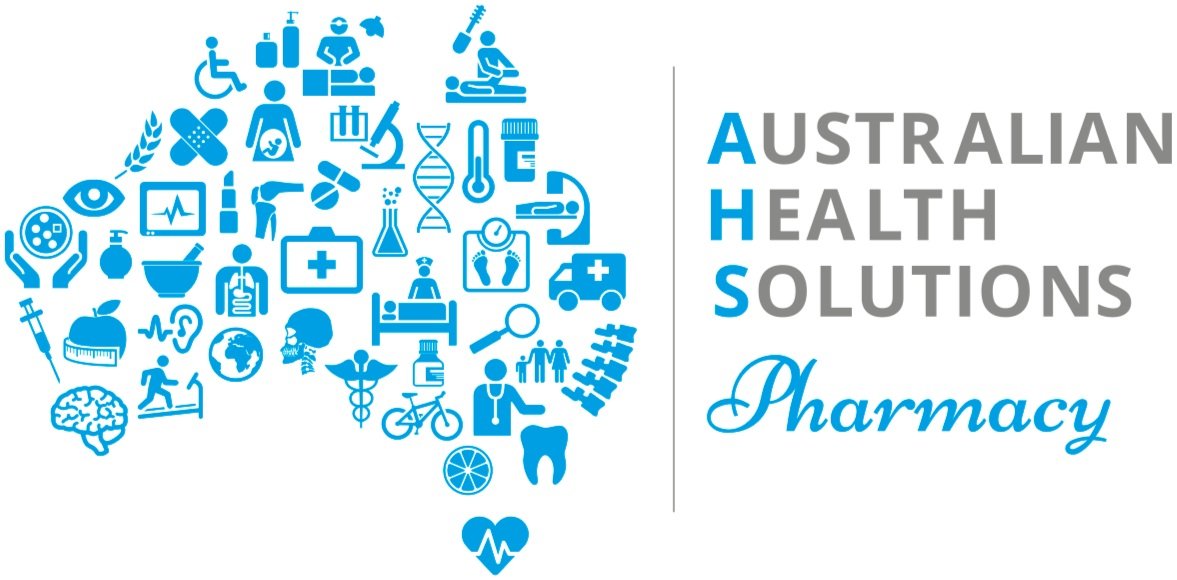CBD vs. THC Benefits: What’s the Difference and What’s Right for You
As specialists in compounded medications and registered cannabis dispensary, AHS Compounding Pharmacy in Reservoir, Victoria, understands the complex landscape of cannabinoids. In this blog post, we’ll explain the differences between two such cannabinoids—CBD (cannabidiol) and THC (tetrahydrocannabinol)—and how they may assist you with better health outcomes
Why AHS Compounding Pharmacy?
Before diving into the cannabinoids, it's worth mentioning that AHS Compounding Pharmacy offers specialised dispensing services for various medications, including Scheduled plant-based medicine like CBD and THC, which require a prescription from a registered Australian doctor. Our team is here to consult with you and your physician to provide personalised medication solutions.
Cannabis is a plant that contains over 100 different compounds called cannabinoids, each with its own effects and benefits. Two of the most researched,well-known and widely-used cannabinoids are Cannabidiol (CBD) and Tetrahydrocannabinol (THC). But what are the differences between CBD and THC, and how can they help you?
CBD and THC are both derived from the cannabis plant, but they have different chemical structures, psychoactive effects, legal status and medical uses. In this blog post, we will compare CBD and THC in terms of their source, effects, benefits, side effects, and legality under Australian law.
Source
CBD can be extracted from hemp or cannabis, which are both varieties of the cannabis plant. While cannabis and hemp come from the same species of plant - Cannabis Savitia L, the key difference is that Hemp contains 0.3% THC or less, while cannabis can contain more than 40% THC.
THC is mainly found in the leaves and flowers of the cannabis saitiva plant, which has higher concentrations of THC than hemp. Under Federal Australian law, THC is illegal, but in Victoria, it is permitted for medicinal purposes.
Effects
CBD does not produce the “high” sensation that is associated with cannabis use. Rather, CBD acts in a different way than THC. CBD exerts its effects on the endocannabinoid system, a network of receptors and chemicals that regulates various physiological functions in the body, such as mood, pain, inflammation, sleep, and appetite. CBD can also influence other receptors and chemical pathways which are responsible for anxiety, depression, and even epilepsy.
THC is the main psychoactive compound in cannabis that produces the characteristic “high” sensation. THC binds to the cannabinoid receptors in the brain, which trigger the release of dopamine, a neurotransmitter involved in pleasure, reward, memory, and motivation. THC can also alter the perception of time, senses, mood, and cognition.
Benefits
Both CBD and THC have potential benefits for various conditions, such as anxiety, insomnia, chronic pain, nausea, appetite loss, epilepsy, glaucoma, and Multiple Sclerosis (MS) to name a few. However, some benefits may be more specific to one cannabinoid than the other.
Evidence suggests that CBD has been shown to have anti-seizure effects for people with epilepsy. CBD can also reduce anxiety and depression by modulating neurotransmitters in the Central Nervous System (CNS). Amongst all the other potential health benefits of CBD, it can also assist in reducing inflammation by inhibiting certain enzymes.
Due to it’s mechanism of binding to the different cannabinoid receptors in the body, THC has been shown to increase appetite and reduce nausea by stimulating the CB1 receptor. THC can also relieve pain by activating the CB1 and CB2 receptors.
Side Effects
CBD is generally well-tolerated and has few side effects. However, some people may experience mild side effects like dry mouth, drowsiness, fatigue, diarrhoea, reduced appetite, or interactions with other medications.
THC can cause more notable side effects such as drowsiness, delayed reaction times and coordination, judgment, reaction time; increased heart rate; red eyes; dry mouthThese side effects may vary depending on the dose, tolerance, and individual sensitivity of each person.
Forms and AHS Compounding Services
CBD and THC are available in a variety of forms, each with its own advantages and considerations. The form of consumption can significantly affect the onset, duration, and intensity of the effects. At AHS Compounding Pharmacy, we can help you choose the right form for your medical needs.
CBD Forms:
Oils and Tinctures: Liquid forms that can be taken sublingually or added to food. Ideal for those who require fast absorption.
Capsules: Pre-measured doses that are convenient but may take longer to show effects.
Edibles and Gummies: Easy to consume but subject to digestive metabolism, which may reduce potency.
Vapes: Quick absorption through the lungs but not recommended for those with respiratory issues.
Topicals: Creams, lotions, or balms for targeted relief, especially for skin conditions or localized pain.
THC Forms:
Oils and Tinctures: Good for precise dosing, can be taken sublingually for rapid effect.
Capsules: Offer consistent dosages but may take time to kick in.
Edibles and Gummies: Longer-lasting effects but can be unpredictable in terms of onset.
Vapes: Immediate effects but with potential respiratory risks.
Topicals: Useful for localized symptoms like muscle pain.
Remember, both CBD and THC are Scheduled drugs in Australia, requiring a prescription from a registered doctor. AHS Compounding Pharmacy is skilled in preparing plant-based medication in various forms tailored to your medical needs.
Conclusion
CBD and THC are both cannabinoids that have different effects and benefits for various conditions. Depending on your needs and preferences, you may choose one over the other or use both in combination. Whether you're interested in CBD, THC, or both, it's crucial to consult your doctor for a prescription. Once you have a prescription, AHS Compounding Pharmacy in Reservoir, Victoria, is your go-to place for personalised medication solutions.


